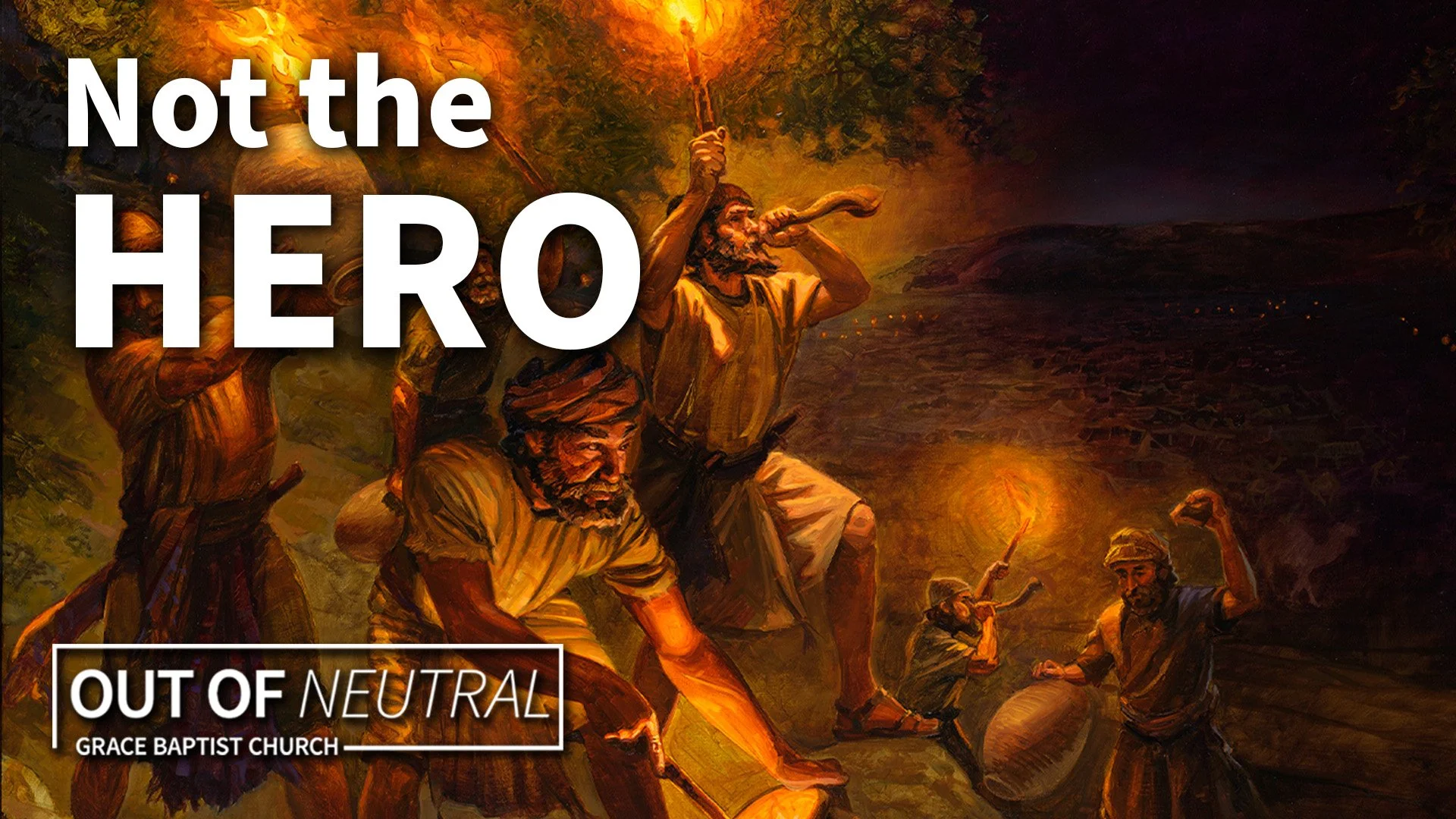We love biographies of successful business people, great inventors, and glamorous celebrities. When we read stories about people in the Bible, we tend to read them in the same way. We assume that the central figure must be a hero, and we look for ways to imitate them. But that usually isn’t a great strategy.
God is the hero of every story
In reading the book of Judges, for instance, it would be wrong to assume that every leader God raises up is an example for us to follow. The fact that God uses someone isn’t proof that He approves of them. While the people in biblical stories sometimes have positive qualities to inspire us, or negative qualities to warn us, the key to reading any biblical narrative is to remember that God is the hero of every story. The story is His story and the various people in the account help to reveal how God relates to us in various situations. Consider Gideon as an example.
Gideon is not the hero of the story
Before many people have heard of the Gideon of the Bible, they’ve heard of “the Gideons” who distribute Bibles. The Gideons International was formed in 1898 by two travelling salesmen. They chose the name because, “Gideon was a man who was willing to do exactly what God wanted him to do, regardless of his own judgment as to the plans or results. Humility, faith, and obedience were his great elements of character.” Humility, faith, and obedience are certainly wonderful virtues to aspire to. Attributing these qualities to Gideon, however, may be a case of looking for the wrong hero. Let me explain.
Marvel at the grace of God
When the angel of the Lord first appears to Gideon, he’s hiding from the Midianites (Judges 6:11) even though God had just sent a prophet commanding Israel not to fear (Judges 6:10). The angel reassures him of God’s presence with him (Judges 6:12) and calls him to rise up and deliver Israel from their oppressors, again assuring him of His plan (Judges 6:14) and promising victory (Judges 6:16). Despite this, Gideon responds with doubts and complaints (Judges 6:13), excuses about his lack of ability (Judges 6:15), and finally a request for a sign to convince him that he can trust God (Judges 6:17). God patiently answers each of Gideon’s responses. We’re supposed to marvel at the grace of God.
Marvel at the patience of God
When he’s asked to tear down his father’s altar to Baal, remarkably he does obey, but he does it by night “because he was too afraid of his family and the men of the town to do it by day” (Judges 6:27). After having been told several times already that God would give him victory if only he marched into battle, Gideon concocts a sign by which he wants God to prove himself. First, he asks God to fill the fleece with dew and keep the ground dry (Judges 6:37), then to keep the fleece dry and cover the ground with dew (Judges 6:39). Amazingly, people will imitate Gideon here, thinking that the passage is teaching that we should test God. We’re supposed to marvel at the patience of God.
Marvel at the power of God
After God chooses Gideon’s army, He charges him to attack the camp of the Midianites. Even still, God offers more assurance (Judges 7:9). If Gideon is afraid, God invites him to secretly go down to the camp of the Midianites and listen to the rumours in the enemy camp (Judges 7:10-11). Of course, Gideon is afraid, and so, instead of attacking, he goes down to listen, and he hears two Midianites talking about a dream that God would give Israel victory (Judges 7:13-14). This gives Gideon courage, but when he leads the army into battle he instructs them to shout, “For the LORD and for Gideon” (Judges 7:18). After all that has happened, Gideon wants to share the credit for victory and see himself as the hero. Even Gideon misunderstood his own story. We’re supposed to marvel at the power of God.
View life with yourself as a supporting actor
Seeing God as the hero of every story helps us better understand what God is saying in the Bible. It also helps us to understand what God is doing in our own lives. So often we try to see our lives and circumstances as if we’re the hero of the story, but God alone deserves that role. When we see ourselves as supporting actors, with God and His purposes on centre stage, our own lives come into clearer view. May God give us eyes to see the world as He sees it!
In awe of Him,
Paul















